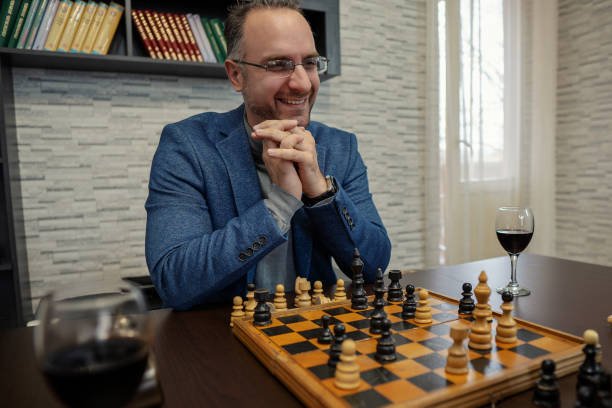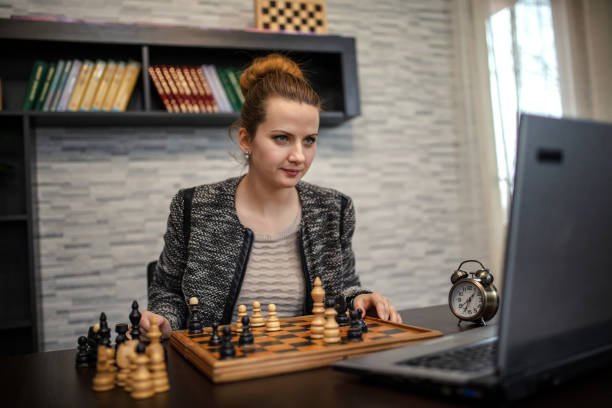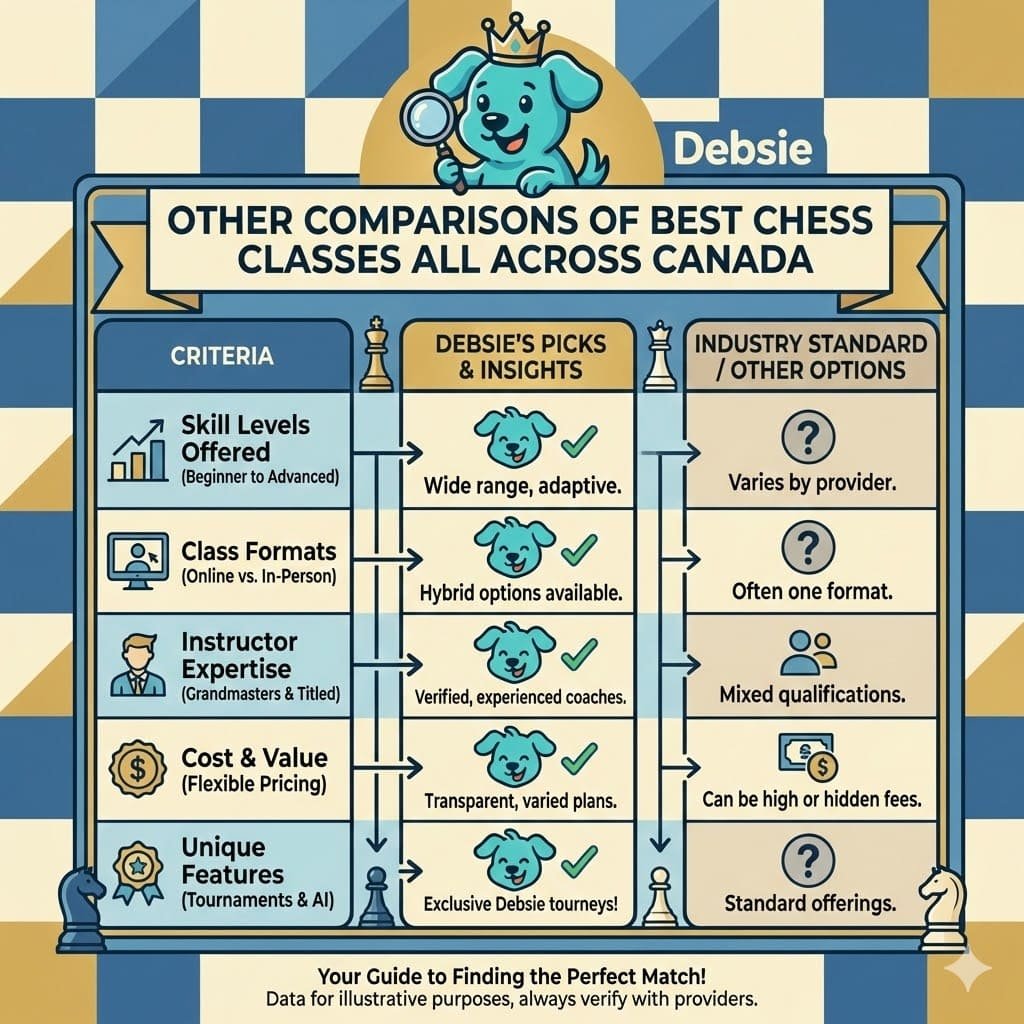If you are searching for the best chess tutors and classes in Vancouver, you have landed in the right place. Chess is not just a game. It is a tool that teaches children how to think clearly, stay patient, and make smart choices in life. Parents often look for a class that not only improves their child’s chess skills but also builds life skills like focus, problem solving, and confidence.
In Vancouver, there are many chess clubs and small academies where kids can learn the basics. Some meet in libraries, schools, or community centers. But most of these programs are casual and unstructured. They don’t have a clear step-by-step plan, and children often end up repeating the same lessons without growing much.
This is where online chess training shines. And this is also where Debsie takes the lead. Debsie is not just another chess school. It is a global online chess academy that is trusted by parents and loved by students in more than nine countries.
Online Chess Training
Online chess training has changed the way children and adults learn the game. A few years ago, if you wanted to learn chess, you had to go to a local club or hope that a school teacher knew the basics.
Today, things are very different. With just a laptop and an internet connection, you can sit in your living room in Vancouver and take a lesson from a world-class coach who may be teaching from another continent.
The beauty of online learning is not just convenience. It is structure. When learning in person at a small club, students often play games without real guidance. They win or lose but don’t always understand why.
In an online setting, however, the coach has powerful tools to show the student the exact mistake, the better move, and the idea behind it. Children can see the board move in real time, hear explanations, and even watch game replays after the class.

The Landscape of Chess Training in Vancouver and Why Online Chess Training is the Right Choice
Vancouver is a vibrant city with a growing interest in chess. Local clubs sometimes organize casual weekend meetups. Some schools also run after-school chess programs, but these usually rely on volunteers or part-time coaches.
While this can be fun for social interaction, it does not compare to a structured academy program where every lesson builds on the last one.
In a city like Vancouver, parents are busy. Traffic, long commutes, and unpredictable schedules make it difficult to attend physical classes every week. Online chess solves this problem.
A child can log in for a 60-minute class right after finishing homework without wasting time on travel. Families save hours every month, and children use that time for study or relaxation.
Online training is also the right choice because it connects students to global expertise. In Vancouver, you may only have a handful of coaches available. But online, your child can learn from FIDE-certified trainers who have worked with hundreds of students worldwide.
This access is priceless. It ensures your child is not limited to local resources but is instead exposed to world-class training, right from home.
How Debsie is the Best Choice When It Comes to Chess Training in Vancouver
Among all online academies, Debsie stands at the very top. The reason is not only the quality of its coaches but also the unique way it approaches learning. At Debsie, there is no “one-size-fits-all” method. Every student begins with a free trial class. During this trial, the coach carefully observes the child’s current level.
Some students may already know openings but struggle with endings. Others may be completely new to chess and need to start with the basics. Debsie makes sure that the class plan matches the student’s exact need.
Once the student joins, the journey begins with a structured curriculum. This is where Debsie shines brightest. Most offline clubs in Vancouver lack a clear roadmap. They often mix advanced topics with beginner lessons, leaving children confused.
At Debsie, every student follows a clear path: beginner, intermediate, advanced, and expert. Each stage includes interactive lessons, homework, game analysis, and bi-weekly tournaments where students test their skills against peers from around the world.
The coaches at Debsie are all FIDE-certified, which means they are recognized by the world chess federation. More importantly, they are not just strong players—they are excellent teachers.

Offline Chess Training
For many years, offline chess training was the only option available. Parents in Vancouver who wanted their children to learn the game would often search for local chess clubs, community programs, or private tutors. Some schools also hosted after-school chess sessions where kids could gather, play, and learn a few moves from a coach or even from an older student.
Offline training has a charm of its own. Children get to sit across the board from their opponent, shake hands before the game, and feel the weight of the pieces in their hands.
For parents who grew up in the pre-digital world, this traditional setting may feel familiar and even comforting. There is a sense of community when kids gather in one place, laugh together, and compete face to face.
In Vancouver, offline chess classes usually happen in community centers, libraries, or rented halls. Some local tutors also offer one-on-one sessions at the student’s home. At first glance, this can look appealing. After all, the child is meeting other kids, playing over-the-board games, and socializing. Parents may feel reassured because they can physically see where their child is going for lessons.
But when we look deeper, offline chess training begins to show cracks. The environment is not always designed for structured learning. Many community clubs focus more on casual play than on actual skill development.
Children are often placed in mixed groups where beginners and advanced students sit side by side, which leads to uneven progress. A child who already understands the basics may get bored, while a complete beginner may feel lost.
Another challenge is time. Vancouver is a busy city with heavy traffic, and families already juggle school, sports, music, and other activities. Traveling across town for a one-hour chess class can easily take up three hours of the day when you count the commute. For working parents, this becomes a real struggle.
Drawbacks of Offline Chess Training
While offline chess training has been around for decades, many parents in Vancouver are beginning to realize its limitations. At first, it looks appealing: children gather in one place, play games, and get exposure to real boards. But when parents step back and look at progress over months, they often notice that improvement is slow or inconsistent.
The first drawback is the lack of structure. In community clubs or small academies, lessons are often unplanned. One week the group may go over an opening, and the next week they might jump into tactics or endgames. There is no clear path that ensures every student builds their skills step by step.
Without structure, children repeat the same mistakes and don’t advance to the next level. Parents in Vancouver often share how their child has been attending offline classes for years yet still struggles with basic strategies.
Another major issue is the mixed-level environment. Imagine a class where one child is just learning how the knight moves, while another child is already studying advanced openings. Both children sit in the same room, but neither is fully engaged. The beginner feels lost, and the advanced player feels held back.
Offline training in Vancouver often faces this problem because there are not enough coaches to split students into smaller, level-based groups.
Travel is also a real challenge. Vancouver is a large, busy city. Parents may spend an hour driving across town, looking for parking, and waiting while their child attends a one-hour session. By the time they return home, three hours are gone. For many families, this simply does not fit into their schedule.
Children also arrive tired after school and then have to sit through traffic before even starting their chess class. By the time they reach the classroom, their energy and focus are already low.
The quality of coaching is another drawback. Offline chess clubs in Vancouver often rely on part-time coaches or volunteers. Some of them are strong players, but not all are trained teachers.

Best Chess Academies in Vancouver, Canada
Vancouver has a handful of chess academies and clubs, each with its own approach. Some focus on casual play, while others run small group classes. But when we compare them side by side, one name clearly rises above the rest: Debsie.
1. Debsie
Debsie is not just the best choice in Vancouver—it is one of the best online chess academies in the world. What makes Debsie different is its focus on both chess and life skills. Parents in Vancouver often want more than just lessons on openings and tactics.
They want their children to grow in confidence, to learn how to concentrate for long periods, and to make decisions wisely. Debsie delivers on all of these fronts.
The journey with Debsie begins with a free trial class. This class is not just a simple introduction. It is a full evaluation session where the coach studies the child’s current level, strengths, and weaknesses. If the child already knows basic moves, the coach pushes them toward deeper strategies.
If the child is a beginner, the coach makes learning fun and simple. Parents leave the trial class with a clear picture of where their child stands and how Debsie will help them grow.
The structure of Debsie’s program is one of its strongest features. Unlike offline clubs that jump randomly between topics, Debsie follows a clear curriculum. Students move through levels step by step—beginner, intermediate, advanced, and expert.
Each level has its own set of lessons, practice games, homework, and regular tournaments. This gives children a sense of progress. They know exactly where they are and where they are going next.
Debsie’s coaches are all FIDE-certified, which means they have been recognized by the world chess federation. But more than that, they are gifted teachers. They know how to explain difficult concepts in a way that even a young child can understand.
They also bring a global perspective, as Debsie’s team includes trainers from different parts of the world, each with their own experience and insights.
2. Vancouver Chess School
The Vancouver Chess School is one of the more well-known offline academies in the city. They run classes for children in local schools and community centers. Some of their coaches are experienced players, and they organize small local tournaments. This can be a good option for parents who want their child to have some face-to-face interaction.
However, the classes are group-based and not always personalized. Children often get less attention, and the pace can feel too slow for advanced students or too fast for beginners.
3. Chess2Inspire Academy
Chess2Inspire is another local program that offers chess lessons in Vancouver. Their coaches focus on helping children improve tactical play, and they sometimes host holiday camps.
While this can be fun, the program does not have the global reach or structured curriculum that Debsie offers. It is more of a local club than a long-term academy.
4. Knight’s Move Chess Club
Knight’s Move Chess Club meets at libraries and community centers. It is a friendly environment where kids can gather and play games. The sessions are mostly unstructured and focus more on casual play rather than skill development.
For children who just want to enjoy chess as a hobby, this club can be fine, but it does not provide the depth or professional coaching that parents usually want.

5. Junior Chess League Vancouver
The Junior Chess League runs competitions for young players in Vancouver. This gives children exposure to tournament play, which is valuable experience. However, they focus mainly on organizing events rather than teaching.
A child who joins this league may play many games but will not necessarily learn why they are winning or losing. Without coaching, growth remains slow.
Why Online Chess Training is The Future
When we look at how the world has changed in the past decade, one thing is clear: learning has moved online, and it is here to stay. Chess is no exception. In fact, chess has adapted to the online space better than almost any other subject. The board fits perfectly on a screen, the moves are easy to follow digitally, and the tools available for online teaching are far more powerful than anything offline classes can offer.
In Vancouver, parents are beginning to see this shift. A few years ago, offline clubs were the only option. Parents drove their children to community centers and waited for an hour while they played. Now, families realize that their child can get a higher quality of training online without wasting time on travel.
The same child who would spend three hours for a one-hour class can now finish a lesson, practice puzzles, and still have time left for dinner and family activities.
Online training is also the future because it breaks geographical limits. In the past, a child’s chess progress depended on whether a strong coach happened to live nearby. If the best coach was in another city, there was no way to access their knowledge.
Now, with online platforms, a child in Vancouver can learn from a coach in Europe, Asia, or anywhere in the world. This global access gives students the very best instruction available, not just what happens to be local.
Technology makes online training even more powerful. Coaches can share interactive boards, run live quizzes, and instantly review a student’s games. Lessons can be recorded, so students can rewatch them when needed.
Tools like databases and puzzles allow students to practice at their own pace outside of class. None of this is possible in a traditional offline setting.
Another reason online chess is the future is flexibility. Offline clubs have fixed schedules, and if a child misses a class, the lesson is lost forever. Online academies, especially Debsie, offer flexible scheduling.
How Debsie Leads the Online Chess Training Landscape
When parents in Vancouver compare chess academies, one name always rises to the top—Debsie. The reason is not just that Debsie offers online lessons. Many platforms claim to do that. What makes Debsie the leader is the way it combines structure, coaching excellence, community, and personal care into one complete learning experience.
Debsie understands that every child is different. Some are shy and need encouragement, while others are confident and hungry for challenge. Some are just starting out, while others already play in school tournaments. Instead of forcing every student into the same group, Debsie personalizes the journey. The curriculum is structured but flexible, ensuring each child moves forward at the right pace.
Coaching is another area where Debsie shines. All trainers are FIDE-certified and bring years of teaching experience. They know how to make a six-year-old laugh while explaining a pawn move, and how to push a teenager to think three steps ahead.
Parents in Vancouver quickly notice the difference in quality compared to local clubs, where coaches may know the game but not how to teach it effectively.
Debsie also gives children the gift of competition in a safe and exciting way. The academy hosts bi-weekly online tournaments where kids from nine different countries come together to test their skills.
A child in Vancouver can play against a peer from London, New Delhi, or New York, all within the same evening. This global competition builds confidence and prepares children for real-world challenges.
Another reason Debsie leads is because it goes beyond chess. While the game is the medium, the lessons go much deeper. Children learn patience, focus, resilience, and decision-making—skills that carry into every part of life.
Parents often share stories of how their child, after a few months with Debsie, has become more disciplined in schoolwork, more thoughtful in choices, and more confident in speaking up.

Conclusion
Chess is more than just a board game. For children in Vancouver, it is a way to build focus, patience, and smart thinking—skills that last a lifetime. Parents today have many options, from local clubs to community programs. But when it comes to real progress, nothing compares to structured online training.
Offline classes may give children a place to play, but they lack consistency, structure, and global exposure. Online training, on the other hand, offers a clear path, powerful tools, and access to world-class coaches—all without the stress of travel. That is why families everywhere, including in Vancouver, are turning to online academies.
And when we talk about online chess academies, Debsie leads the way. With its FIDE-certified coaches, structured curriculum, interactive lessons, global tournaments, and focus on life skills, Debsie is more than just a chess school. It is a community where children grow not only as players but also as thinkers and leaders.
👉 Book your free trial today: https://debsie.com/take-a-free-trial-class/
Comparisons With Other Chess Schools:
Other Comparisons of Best Chess Classes All Across Canada:




